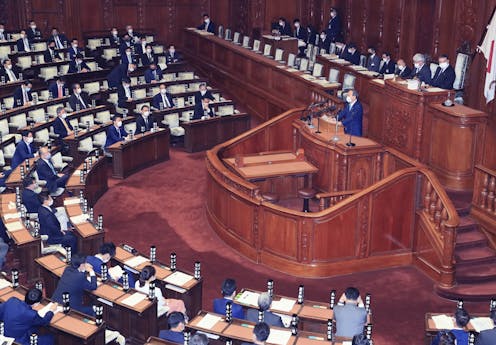From Five Eyes to Six? Japan's push to join the West’s intelligence alliance
- Written by Craig Mark, Professor, Faculty of International Studies, Kyoritsu Women's University
 AAp/AP/Kaname Yoneyama
AAp/AP/Kaname YoneyamaAs tensions with China continue to grow, Japan is making moves to join the “Five Eyes” intelligence-sharing alliance. This week, Japan’s ambassador to Australia, Shingo Yamagami, told The Sydney Morning Herald he was “optimistic” about his country coming on board.
[I] would like to see this idea...
Read more: From Five Eyes to Six? Japan's push to join the West’s intelligence alliance
















